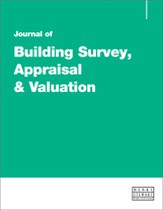The challenges of providing alternatives under a prescriptive code regime
Abstract
When submitting an alternative (alternate) under a prescriptive code regime, intangible factors such as good human relations are every bit as critical to the process as soundly addressing the technical aspects of the submittal. Additionally, a clear and concise understanding and portrayal of what is intended to be accomplished by the alternate is critical in getting a fair consideration of the request. Through submitting hundreds of alternates to jurisdictions across the USA, the author has gained a good perspective on what works, and what fails to connect in the process. Several of the more important aspects of these experiences have been provided in the narrative hopefully to assist others in achieving positive outcomes. By following a few simple procedural steps, and recognising that the process is often just as much about interpersonal communication skills as it is initiating a common-sense solution to difficult problems, code consultants can enjoy a higher frequency of alternate approvals. In this way, the code consultant provides a higher level of service to their clients by potentially eliminating costly design modifications, schedule delays, or unintended consequences that can result from such interactions. More than anything, the value of what is brought to the table by this process far outweighs the costs involved of never having made the effort in the first instance.
The full article is available to subscribers to the journal.
Citation
Gentille, Michael (2013, April 1). The challenges of providing alternatives under a prescriptive code regime. In the Journal of Building Survey, Appraisal & Valuation, Volume 2, Issue 1. https://doi.org/10.69554/AVGD4552.Publications LLP
